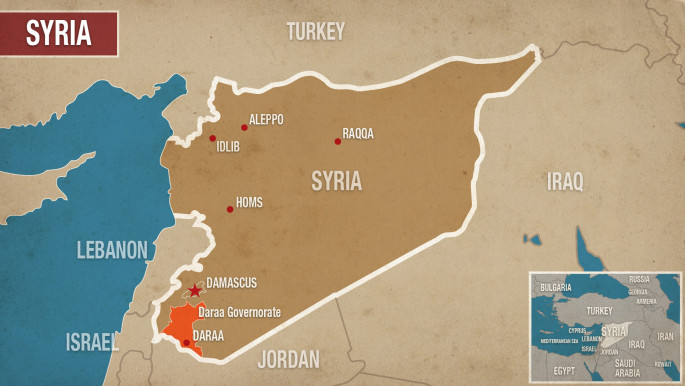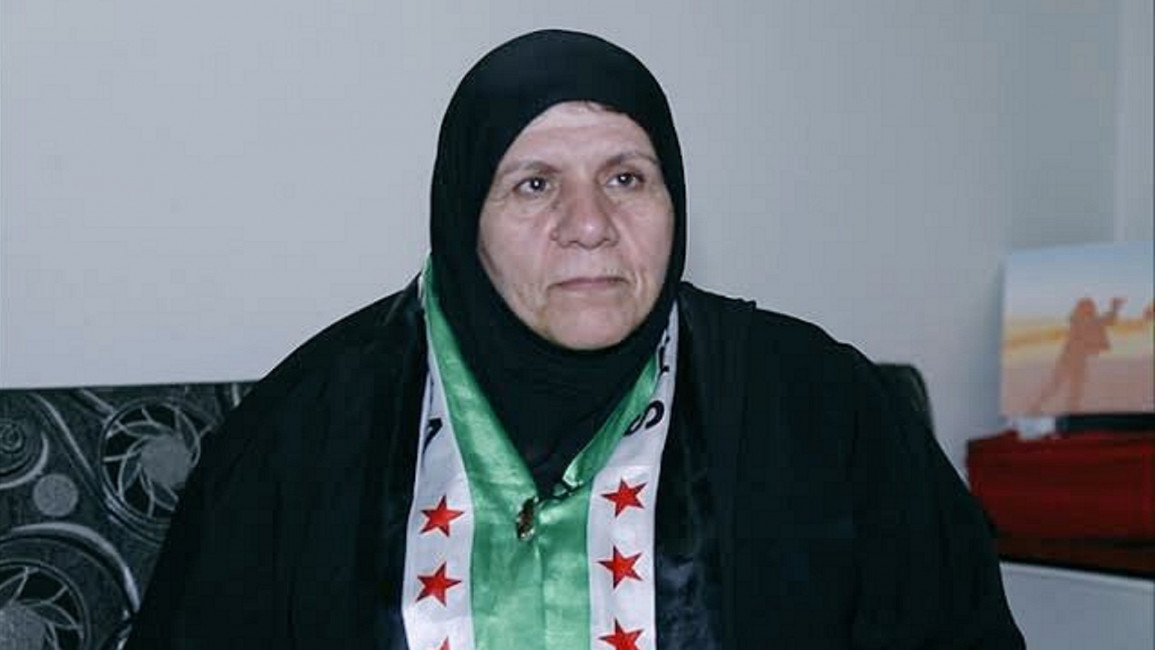Jordan denies reports it plans to expel prominent Syrian activist following widespread outrage
Syrians and their supporters in Jordan reacted angrily on Friday after Hasna al-Hariri, an activist who fled to Jordan from Syria in 2014, said in a recorded message that the authorities had informed her that she has 14 days to leave the country.
The message was shared widely on social media and activists and rights workers launched an Arabic-language hashtag, #No_to_the_deportation_of_Hasna_Hariri, which quickly gained traction in Jordan.
Hariri, who is in her sixties, added that Jordanian authorities also gave her son Ibrahim and another activist, Raafat Al-Salkhadi, 14 days to leave Jordan.
She said that she believed the reason for the expulsion was her continued contact with opponents of Bashar al-Assad's regime inside Syria, adding that Jordan wanted to improve ties with Damascus.
|
|
The southern Syrian province of Daraa, also known as Hauran, was one of the first areas to see protests against the Assad regime when the Syrian revolution broke out in 2011. Al-Hariri took part in the earliest protests in the area, which the regime responded to by brutal force.
Read more: The cradle of Syria's revolution - Daraa ten years on
She was detained by the regime in July 2012 and sentenced to death for her opposition activities. However, she was released in January 2014 after the regime agreed a prisoner exchange with Syrian opposition forces, and has since been living in Jordan.
Hariri suffered mental and physical torture while held by the regime and also witnessed torture that other detainees were subjected to.
When she was released she found that her husband, her brothers, two of her sons, and four of her sons-in-law had been killed in Syria's conflict.
Her story became widely known among Syrians and she has featured prominently on Syrian media before, reporting that she had seen female detainees being raped and subjected to other forms of abuse and torture.
She was given the name "Khansaa Hauran", in reference to the seventh century poetess Al-Khansaa, who was famous across the Arab world for her elegies for her brothers who died in battle.
Illegal activities?
After news of Hariri's alleged upcoming deportation was widely shared, Jordanian authorities released a statement denying that they had ordered her to leave, saying they had merely cautioned her to suspend "illegal activities".
"Jordan has given [Hariri] all due care and has not forced her to return to Syria but has repeatedly warned her about illegal activities which damage Jordan's reputation," the statement said.
However, the statement did not specify what the "illegal activities" Hariri reportedly engaged in were and she has not been arrested.
The statement warned that if she wanted to continue engaging in "illegal activities" she would have to find another country to live in.
Approximately 1.3 million Syrian refugees live in Jordan, according to Jordanian authorities. Most of them have fled Assad regime's bombardment of civilian areas and persecution of political opponents.
Jordan, however, has recently re-established economic ties with the Assad regime, opening its borders to trade with Syria.
Most of Daraa province, where Hariri is from, was held by Syrian opposition forces until 2018, when the regime took control of the area following a military campaign. The province remains restive however, with regular protests and outbreaks of violence.
Follow us on Facebook, Twitter and Instagram to stay connected



